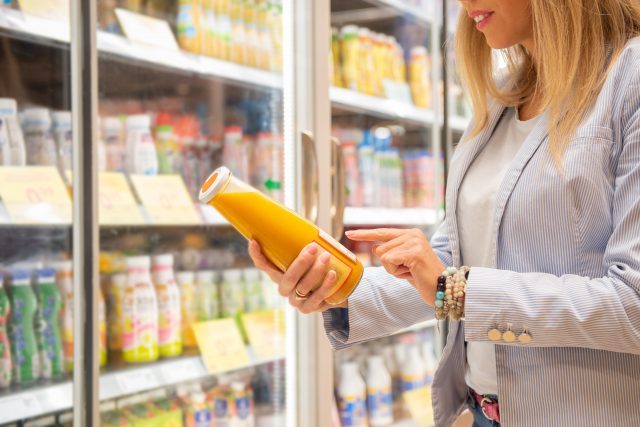This website uses cookies so that we can provide you with the best user experience possible. Cookie information is stored in your browser and performs functions such as recognising you when you return to our website and helping our team to understand which sections of the website you find most interesting and useful.
Reported rates of food and drink allergies rise amidst the pandemic
A rise in self-reported rates of food and drink allergies and intolerances has occurred during the pandemic, according to a new report.

On the strength of increasing numbers and consumer awareness, the allergy friendly food and beverage market is expected to grow through 2026, stated findings from Packaging Facts’ latest ‘Allergy Friendly Foods: Market Trends and Opportunities’ report’.
According to survey data, 14% of adult respondents report having a food allergy, while 23% report being intolerant of or sensitive to certain foods, revealing that a large minority of consumers avoid certain food and drink ingredients at least some of the time.
“Allergy-friendly products are the most important to consumers with diagnosed food allergies that cause allergic reactions such as anaphylaxis, tingling or itching in the mouth, hives, itching, eczema, or swelling,” cited the report.
Additionally, it observed how “some people may think they have a food allergy or intolerance while not actually having these conditions. Some consumers also avoid certain allergens such as gluten, milk, or soy because they do not like these ingredients, think these ingredients are unhealthy, or simply have a negative perception of the ingredients. As such, the allergy-friendly food market appeals to a much broader audience than the name implies”.
Opportunities for the food and drink sector can be seen with allergy-friendly products going the extra mile to emphasise when items are ‘free from’ certain allergen ingredients and may have a third-party certification (such as ‘certified gluten-free).
Products that are ‘free from’ the ‘big 8’ major allergens (i.e., eggs, fish, milk, peanuts, shellfish, soybeans, tree nuts, and wheat/gluten) are, according to the report, “important to those with food allergies, as well as products that lack other common food allergens such as sesame, sulfites, mustard, and corn”.
The report reiterated how allergy-friendly options are also valuable to the much larger number of people who have food and drink intolerances or sensitivities that cause unpleasant digestive symptoms such as bloating.

